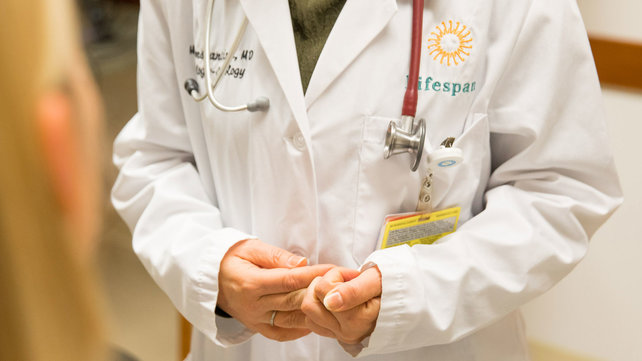Teens and Dating Violence

Dating violence includes physical, sexual and psychological aggression. It is strikingly common in teenage romantic relationships.
As many as 50 percent of teens, regardless of gender, have been involved in physical dating violence. Emotional abuse in relationships is even more common, affecting up to 90 percent of teenage relationships.
Many parents are surprised to learn that their teen is at risk for dating violence, regardless of gender or sexual orientation. Teens are particularly vulnerable to dating violence, with frequency of abuse increasing during adolescence and young adulthood before eventually declining in adulthood. This makes adolescence a unique and important time for healthy relationship development.
Effects of teen dating violence
A teen involved in a violent romantic relationship can experience any number of conditions, affecting both emotional and physical health. The issues that could arise may include:
- depression
- eating disorders
- substance use
- poorer educational outcomes
- disruptive behaviors
- suicidal thoughts
Physical health issues of teen dating violence
Dating violence has also been linked to poorer physical health, and may be linked to chronic health conditions, such as heart disease, increased blood pressure, autoimmune disorders, and chronic pain.
Teens who are involved in dating violence in high school are also more likely to be involved in violent relationships into college and adulthood. Stopping patterns of dating violence behaviors and promoting the development of healthy relationships early is critical to preventing further violence.
Who is at risk for teen dating violence?
There is no single cause of dating violence in relationships and no two teens experiencing dating violence will look exactly the same. However, some factors may put a teen at greater risk for dating violence, including:
- a history of exposure to domestic violence
- a history of other types of aggressive behavior, such as being the victim or perpetrator of bullying
- mental health symptoms, such as depression or anxiety
- alcohol or drug use
- rule-breaking, such as truancy, or gang involvement
It is important to remember that although risk factors exist for involvement in dating violence, teens should not be blamed for being victims of violent relationships.
Signs of teen dating violence
Parents should pay attention to a teen’s moods and behaviors. It’s important to notice patterns or changes in their typical behavior, especially when they begin a new relationship.
Signs that your teen may be struggling with their romantic relationship health include:
- isolating themselves
- spending less time with friends
- disengaging from the family or enjoyable activities
- expressing stress or anxiety about the relationship
- experiencing fluctuating moods
What parents should watch for:
In your own teen, signs of a harmful relationship may also include feeling as if they cannot do anything without their partner’s approval or injuries they cannot explain.
Parents can also notice signs that a relationship is harmful by paying attention to your teen’s partner to see if the partner:
- is highly jealous
- is possessive
- calls your teen names
- undermines your teen’s goals
- monitors your teen’s social media
If you notice these signs, check in with your teen. Try your best to express your concern without judgment. For example, say what you notice. Then ask your teen if they want to talk about it. If your teen is not ready to talk about it right away, you can let them know you are here to talk about it later.
Often teens won’t realize that they’re experiencing unhealthy relationship behaviors or abuse. They may normalize extreme jealousy or frequent and volatile conflict as evidence of intensity and love. Teens may also be defensive when questioned about the relationship. If you continue to observe signs of an unhealthy relationship, follow up with your teen.
How to promote healthy relationships
Prevention is key. Healthy relationship development starts at home. Adolescents learn how to develop healthy relationship behaviors through good communication, support, and problem-solving with their parents. These skills then help teens maintain healthy relationships with friends and romantic partners right into adulthood.
Check in with yourself about the kinds of communication and behavior that you are showing your teen. Teens observe the relationships around them.
If you’ve noticed a change in your teen or identified warning signs of abuse, now is the time to get additional help. Therapists can work with teens and their families together to help the teen identify potential unhealthy relationship behaviors, establish safety plans, or exit the relationship safely, as appropriate.
For more information and tips on keeping children and teens happy and healthy, visit the Grow section of our Be Well health and wellness blog.

About the Author:
Lindsay Orchowski, PhD
Lindsay M. Orchowski, PhD, is a psychologist with Brown Health Medical Group outpatient psychiatry and behavioral health.
Find a Doctor

The right provider is in our network
Search more than 1,200 providers in our network.
